Filter by
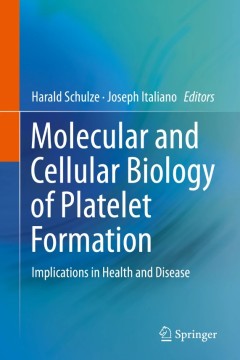
Molecular and Cellular Biology of Platelet Formation
This book gives a comprehensive insight into platelet biogenesis, platelet signal transduction, involvement of platelets in disease, the use of diverse animal models for platelet research and future perspectives in regard to platelet production and gene therapy. Being written by international experts, the book is a concise state-of-the art work in the field of platelet biogenesis, biology and r…
- Edition
- 1
- ISBN/ISSN
- 978-3-319-39560-9
- Collation
- X, 460
- Series Title
- -
- Call Number
- -
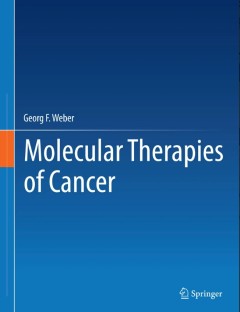
Molecular Therapies of Cancer
Molecular Therapies of Cancer comprehensively covers the molecular mechanisms of anti-cancer drug actions in a comparably systematic fashion. While there is currently available a great deal of literature on anti-cancer drugs, books on the subject are often concoctions of invited review articles superficially connected to one another. There is a lack of comprehensive and systematic text on the t…
- Edition
- 1
- ISBN/ISSN
- 978-3-319-13277-8
- Collation
- XV, 488
- Series Title
- -
- Call Number
- -
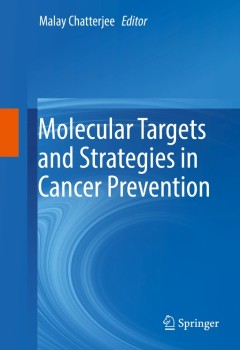
Molecular Targets and Strategies in Cancer Prevention
The book focuses on the understanding of molecular pathways by which normal cell progress to the definable stage of cancer. The chapters explore microbiota and chronic inflammation, multiple myeloma chemoprevention, microRNAs, cancer regulation, liquid biopsies, and angiogenesis. Recent advances of molecular risk assessment, tumor microenvironment, microneoplasia, malignant gene expressions are…
- Edition
- 1
- ISBN/ISSN
- 978-3-319-31252-1
- Collation
- V, 180
- Series Title
- -
- Call Number
- -

Molecular Structures and Structural Dynamics of Prion Proteins and Prions
This monograph is the first easy-to-read-and-understand book on prion proteins' molecular dynamics (MD) simulations and on prions' molecular modelling (MM) constructions. It enables researchers to see what is crucial to the conformational change from normal cellular prion protein (PrPC) to diseased infectious prions (PrPSc), using MD and MM techniques. As we all know, prion diseases, caused by…
- Edition
- 1
- ISBN/ISSN
- 978-94-017-7317-1
- Collation
- XIX, 355
- Series Title
- Focus on Structural Biology
- Call Number
- -
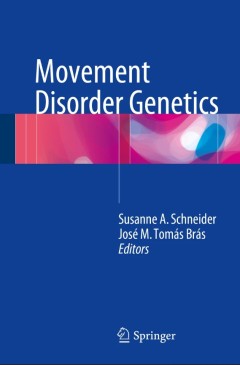
Movement Disorder Genetics
This book covers recent developments and possible pitfalls in the diagnosis of genetic movement disorders and related conditions. It is divided into three sections: technical and scientific aspects; clinical aspects with guidance towards work-up; and ethical and legal aspects of genetic testing in a clinical and research setting. The first section includes chapters on genetic analysis and co…
- Edition
- 1
- ISBN/ISSN
- 978-3-319-17222-4
- Collation
- XIV, 530
- Series Title
- -
- Call Number
- -

Emerging Therapies in Neurorehabilitation II
This book reports on the latest technological and clinical advances in the field of neurorehabilitation. It is, however, much more than a conventional survey of the state-of-the-art in neurorehabilitation technologies and therapies. It was written on the basis of a week of lively discussions between PhD students and leading research experts during the Summer School on Neurorehabilitation (SSNR2…
- Edition
- -
- ISBN/ISSN
- 978-3-319-24901-8
- Collation
- 19 b/w illustrations, 36 illustrations in colour
- Series Title
- -
- Call Number
- -

The Th2 Type Immune Response in Health and Disease From Host Defense and All…
The type 2 immune response that develops during infectious disease has undergone major paradigm shifts in the last several years as new cell types and pathways have been identified. It is now clear that the type 2 immune response, characterized by elevations in specific cytokines, including IL-4, IL-5 and IL-13, is associated with helminth infections in both humans and mice. This response is co…
- Edition
- -
- ISBN/ISSN
- 978-1-4939-2911-5
- Collation
- -
- Series Title
- -
- Call Number
- -
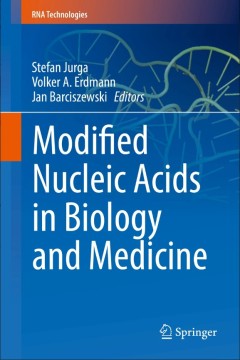
Modified Nucleic Acids in Biology and Medicine
This volume is comprised of 18 chapters, covering various aspects of DNA modification and RNA modified bases. It also discusses in detail circular RNA, therapeutic oligonucleotides and their different properties. The chemical nature of DNA, RNA, protein and lipids makes these macromolecules easily modifiable, but they are also susceptible to damage from both endogenous and exogenous agents. …
- Edition
- 1
- ISBN/ISSN
- 2197-9758
- Collation
- XIV, 453
- Series Title
- RNA Technologies
- Call Number
- -
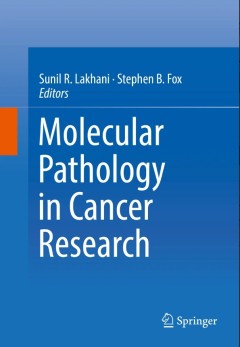
Molecular Pathology in Cancer Research
Cancer Biology, Medical Genetics, Cell Biology, Protein Biochemistry, Molecular Genetics
- Edition
- 1
- ISBN/ISSN
- 978-1-4939-6641-7
- Collation
- VIII, 369
- Series Title
- -
- Call Number
- -
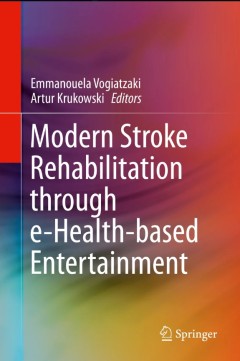
Modern Stroke Rehabilitation through e-Health-based Entertainment
This book describes a new, “e-Health” approach to stroke rehabilitation. The authors propose an alternative approach that combines state of the art ICT technologies ranging from Augmented and Virtual Reality gaming environments to latest advances in immersive user interfaces for delivering a mixed-reality training platform, along with advanced embedded micro sensing and computing devices e…
- Edition
- 1
- ISBN/ISSN
- 978-3-319-21292-0
- Collation
- IX, 324
- Series Title
- -
- Call Number
- -
 Computer Science, Information & General Works
Computer Science, Information & General Works  Philosophy & Psychology
Philosophy & Psychology  Religion
Religion  Social Sciences
Social Sciences  Language
Language  Pure Science
Pure Science  Applied Sciences
Applied Sciences  Art & Recreation
Art & Recreation  Literature
Literature  History & Geography
History & Geography